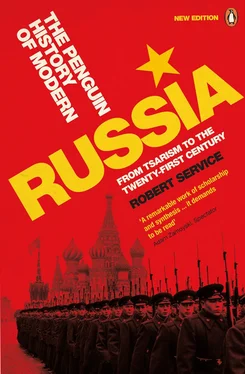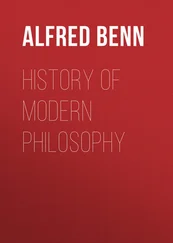The Mensheviks and Socialist-Revolutionaries retorted that there was no greater plausibility in Lenin’s plan to bring the military struggle to a halt by means of a ‘European socialist revolution’; they contended that the Bolsheviks overlooked the will and the capacity of both the Allies and the Central Powers to fight it out to the war’s bitter end. In the interim Kerenski had two priorities. First, he wanted to reimpose the government’s authority in the towns and at the front; second, he aimed to secure a more regular supply of food from the countryside. He signalled his firmness by appointing General Lavr Kornilov, an advocate of stern measures against unruly soviets, as Supreme Commander of Russian armed forces. He also refused — at least initially — to accede to the peasants’ demands for increased prices for their products. A complete state monopoly on the grain trade had been announced in March and comprehensive food rationing in April. Kerenski gave an assurance that his cabinet would bring a new efficiency to the task of guaranteeing the availability of bread for urban consumption.
But he could not keep his promises. Foreign financial support became harder to obtain; and although a ‘Liberty Loan’ was raised at home, this still had to be supplemented by an accelerated emission of banknotes by the Ministry of Finances. 13An accelerated rate of inflation was the inevitable result. It was of little comfort to Kerenski that the harvest of 1917 was only three per cent lower than the total for 1916. 14Peasants continued to refuse to release their stocks until there was a stable currency and an abundance of industrial products. On 27 August the cabinet reluctantly licensed a doubling of prices offered for wheat. But little improvement in food supplies followed. In October, the state was obtaining only fifty-six per cent of the grain procured in the same month in the previous year, and Petrograd held stocks sufficient only to sustain three days of rations. 15
The military situation was equally discouraging. After repelling the Russian offensive in June, the German commanders drew up plans for an offensive of their own on the northern sector of the Eastern front. Russia’s prospects were grim. Her soldiers had become ill-disciplined and had begun to ask whether the war was worth fighting, especially when they suspected that the Provisional Government might still be pursuing expansionist aims. They were agitated, too, by talk that a comprehensive expropriation of the landed gentry’s estates was imminent. Desertions occurred on a massive scale. The German advance met with the weakest resistance since the start of the war. Riga was lost by the Russians on 22 August. No natural obstacle lay in the five hundred kilometres separating the German army and the Russian capital. The Provisional Government could no longer be confident of avoiding military defeat and territorial dismemberment.
The fortunes of war and revolution were tightly interwoven; Kerenski’s chances of surviving as Minister-Chairman depended in practice upon the performance of Allied armies on the Western front. Were the British and French to lose the battles of the summer, the Germans would immediately overrun Russia. The obverse side of this was the possibility that if the Allies were quickly to defeat Germany, they would relieve the Provisional Government’s position because Russia would gain prestige and security as a victor power. Unfortunately for the Provisional Government, the Central Powers were nowhere near to military collapse in summer and autumn 1917.
Trepidation about the situation led to a rightward shift in opinion among the middle and upper social classes. Their leading figures were annoyed by Kerenski’s manoeuvres to maintain support among the Mensheviks and Socialist-Revolutionaries; they had come to regard even the Kadets as hopelessly weak and inept. The problem for middle-class opinion was that the other anti-socialist organizations were weaker still. The Union of the Russian People had virtually ceased activity and its leaders had gone into hiding. Their close association with the monarchy before the February Revolution left them discredited. While most citizens endorsed political freedom and national tolerance there was no chance that the traditional political right would make a comeback — and citizen Nikolai Romanov said nothing that might encourage monarchists: he and his family lived as unobtrusively as they could in sleepy Tobolsk in western Siberia from July 1917. 16
Even the Russian Orthodox Church, freed at last from the constraints of tsarism, resisted the temptation to play the nationalist card. Bishops and priests dedicated their energies to internal debates on spirituality and organization. When an Assembly ( Sobor ) was held in August, politics were largely avoided. Months of discussions followed. Only in November did the Assembly feel ready to elect a Patriarch for the first time since 1700. The choice fell upon Metropolitan Tikhon, who had lived abroad for much of his life and was untainted by association with tsarism. 17
And so it fell to elements in the army to take up the cause of the political right. Most Russian military commanders were steadily losing any respect they had for Kerenski. Initially Kornilov and Kerenski had got on well together, and had agreed on the need for greater governmental control over the soviets and for the reintroduction of capital punishment for military desertion. Both called for the restoration of ‘order’. But Kerenski was soon irked by Kornilov, who allowed himself to be greeted ecstatically by right-wing political sympathizers on his visits from the Eastern front. Kerenski, having summoned Kornilov to Petrograd to stiffen the Provisional Government’s authority, changed his mind and countermanded the transfer of any troops. On 27 August, Kornilov decided that this was a sign of the cabinet’s ultimate abandonment of the programme of necessary action already agreed with him. He pressed onwards to Petrograd in open mutiny. 18
Kerenski stood down the Second Coalition and governed through a small inner group of trusted ministers. The emergency was made even more acute by the bad news from the Eastern front, where Riga had fallen to the Germans only five days before. Kerenski had no choice but to turn for assistance to the very Petrograd Soviet which he had lately been trying to bring to heel. The response was immediate and positive. Bolsheviks as well as Mensheviks and Socialist-Revolutionaries went out to confront Kornilov’s troops and persuade them to abandon their mission to Petrograd. The efforts of this united front of socialist activists were crowned with success. The troops halted their own trains from moving further towards Petrograd and General Kornilov was put under arrest. His mutiny had ended in fiasco.
Meanwhile popular discontent increased as conditions in the country worsened. Soldiers wanted peace, peasants wanted land, workers wanted job security and higher real wages. Not only the working class but also the large number of ‘middling’ people faced a winter of hunger. Shopkeepers, carriage-drivers and providers of various other services shared the fear that bread and potatoes might soon become unobtainable; and their small businesses were disrupted by the general economic chaos. 19Moreover, the urban cost of living rose sharply: the price index more than doubled between March and October. 20The wage-rises negotiated after Nicholas II’s abdication did not keep pace with inflation. Unemployment, too, was becoming widespread; and there was no state welfare for those thrown out of work. All workers in factories, mines and other enterprises felt the adverse effects of a collapsing economy. They formed a united front against their employers.
Kerenski could not begin to satisfy these desires except if he withdrew from the war. And yet if he were indeed to withdraw from the war, he would be castigated by all parties — including the Bolsheviks — for betraying Russia’s vital interests. As it was, he was being subjected to Lenin’s wholly unfair accusation of plotting to hand over Petrograd to the Germans. 21Nor did Kerenski stand much chance of surviving in power once the elections to the Constituent Assembly were held. Again Lenin made charges of malpractice. Kerenski, he claimed, was deliberately delaying the elections. In fact a huge administrative task, especially in wartime, was entailed in the accurate compilation of voters’ rolls. Nevertheless Kerenski’s prospects were far from good once the process had been completed.
Читать дальше












